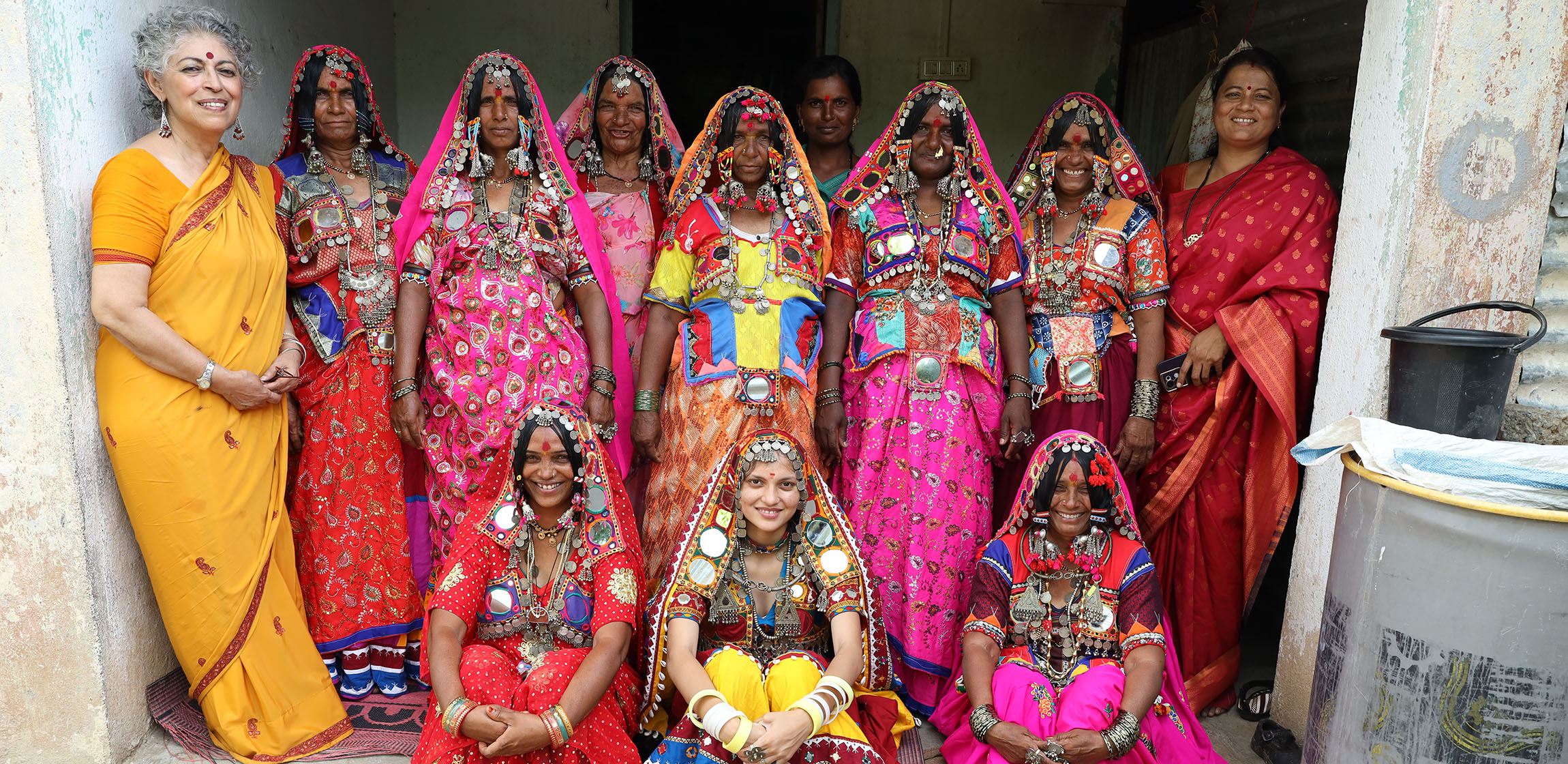Cotsen Textile Traces Talk: Mirror Mirror: Beauty in the Eyes of the Banjara
Join journalist and Soroptimist Nisha Ghosh on her journey to Nandurg, a village in Maharashtra, to meet Banjara women. In 1993, a devastating earthquake caused a paradigm shift in how these women adapted to modern India. Through the story of Babita and her family, Ghosh will explore how design and adaptation play an essential role in the continuity of Banjara traditions.
This talk is inspired by the Cotsen Textile Traces Study Center’s micro exhibition, “Mirror, Mirror,” which showcases a small selection of embroidered textiles from the Banjara tribe, which is found in several states of India. The exhibition features two headdresses, a blouse and photographs of contemporary Banjara women in Latur, Maharashtra. Through a close examination of embroidery stitches, this micro exhibition decodes the meanings and beliefs behind the use of mirrors, cowrie shells, bells and coins in the elaborate headdresses worn by Banjara women.
About Nisha Gosh
Nisha Ghosh is a journalist, documentary filmmaker and Soroptimist from Pune, India. She holds a master's degree in English literature from Miranda House at Delhi University and a diploma in journalism. Since 1974, she has worked as a freelance journalist and writer, produced programs for the Delhi TV Center and served as an education consultant at The Times of India. Ghosh joined Soroptimist International Poona in 2002 and later founded a new chapter in her city. Committed to making a difference, she dedicates her energy to the organization’s mission of supporting and empowering women and girls in all communities.
About Micro Exhibitions
Visit the museum’s lower-level galleries to see a rotating selection of objects from the Cotsen Textile Traces Study Collection. Inspired by contemporary culture and world events, these micro exhibitions are collaborative projects with GW faculty, students and special guests.
About the Center
The Cotsen Textile Traces Study Center is home to one of the world’s most significant textile study collections. Assembled by the late Lloyd Cotsen, it consists of nearly 4,000 fragments of textiles created around the globe and dating from antiquity to the present, as well as some 100 sample books. Scholars, faculty, students and artists are invited to schedule a research visit, and the entire collection is accessible online. The center also presents rotating gallery displays and public programs inspired by the collection. Learn more about the center
How to Participate
This program will be in a hybrid format. Join us in person at the museum or register to watch the livestream online via Zoom. When you register, you can also request to receive a reminder email one day before the program with the link included.


